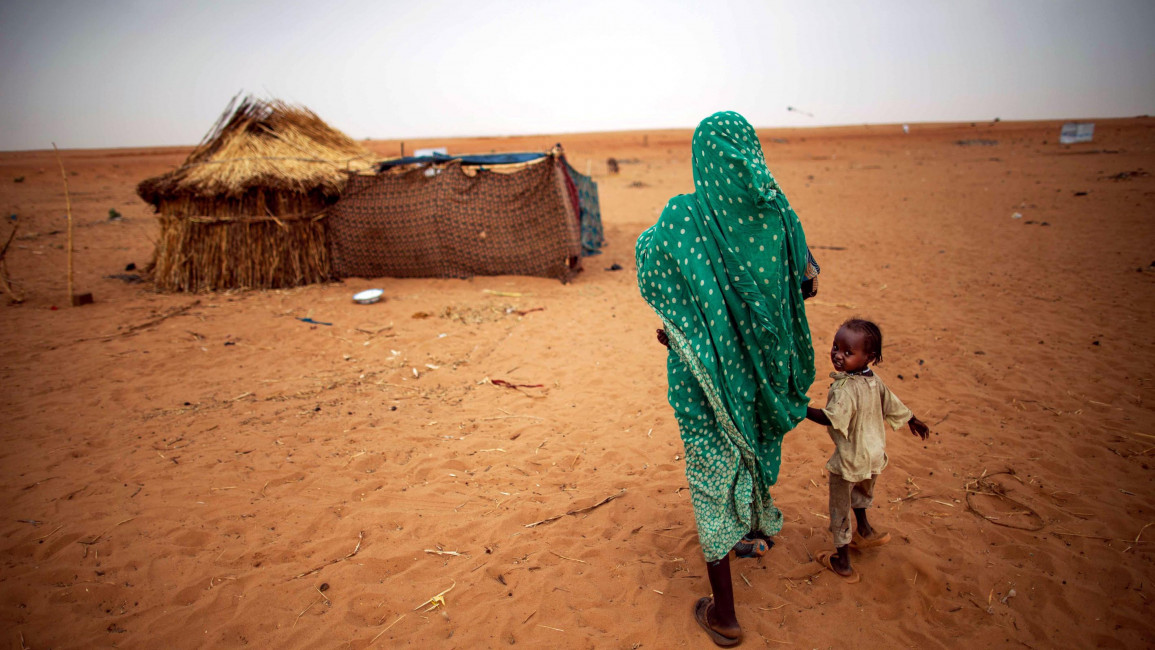Sudan urged to take steps to get justice for Darfur victims
The International Criminal Court's chief prosecutor on Tuesday urged Sudanese authorities to take "practical steps" to get justice for victims of the Darfur conflict and hold those responsible for atrocities in the region accountable.
Prosecutor Karim Khan's remarks came in a meeting with Sudan’s Justice Minister Nasredeen Abul-Bari in Khartoum, according to a ministry statement.
Khan did not elaborate, but he apparently was referring to the handover of suspects wanted for war crimes and genocide in the Darfur conflict. Those include former President Omar al-Bashir who has been in jail in Khartoum since his ouster in April 2019 amid a public uprising against his nearly three-decade of autocratic rule.
The conflict in Sudan's Darfur region broke out when rebels from the territory's ethnic central and sub-Saharan African community launched an insurgency in 2003, complaining of oppression by the Arab-dominated government in Khartoum. Al-Bashir's government responded with a campaign of aerial bombings and raids by militias known as janjaweed.
The militias stand accused of mass killings and rapes. Up to 300,000 people were killed and 2.7 million were driven from their homes.
Khan, who took office as the international court's top prosecutor in June, arrived in the Sudanese capital late on Monday, embarking on a week-long trip to discuss cooperation with Sudanese authorities, his office said.
Justice Minister Abul-Bari said the transitional government “pays attention to achieving justice in Sudan and working with the International Criminal Court to achieve justice for victims of war in Darfur,” according to the statement.
Khan's visit came a week after Sudan's Cabinet approved a draft bill allowing the East African country to join the court's founding treaty, known as the Rome Statute. The decision was a step forward in the long-waited trial of those wanted by the ICC.
The bill, however, still needs to be ratified by a joint meeting of Sudan's ruling Sovereign Council and Cabinet. Together they serve as an interim parliament.
Sudan's transitional government, which has promised democratic reforms and is led by a mix of civilian and military leaders, has previously said that war crime suspects, including al-Bashir, would be tried before the ICC. But the trial venue is a matter for negotiations with The Hague, Netherlands-based court.
The court charged al-Bashir with war crimes and genocide for allegedly masterminding the campaign of attacks in Darfur. Sudanese prosecutors last year started their own investigation into the conflict.
Also indicted by the court are two other senior figures from al-Bashir's rule: Abdel-Rahim Muhammad Hussein, interior and defence minister during much of the conflict, and Ahmed Haroun, a senior security chief at the time and later the leader of al-Bashir’s ruling party.
Both Hussein and Haroun have been under arrest in Khartoum since the Sudanese military, under pressure from protesters, ousted al-Bashir in April 2019.
The court also indicted rebel leader Abdulla Banda, whose whereabouts are unknown, and janjaweed leader Ali Kushayb, who was charged in May with crimes against humanity and war crimes.



